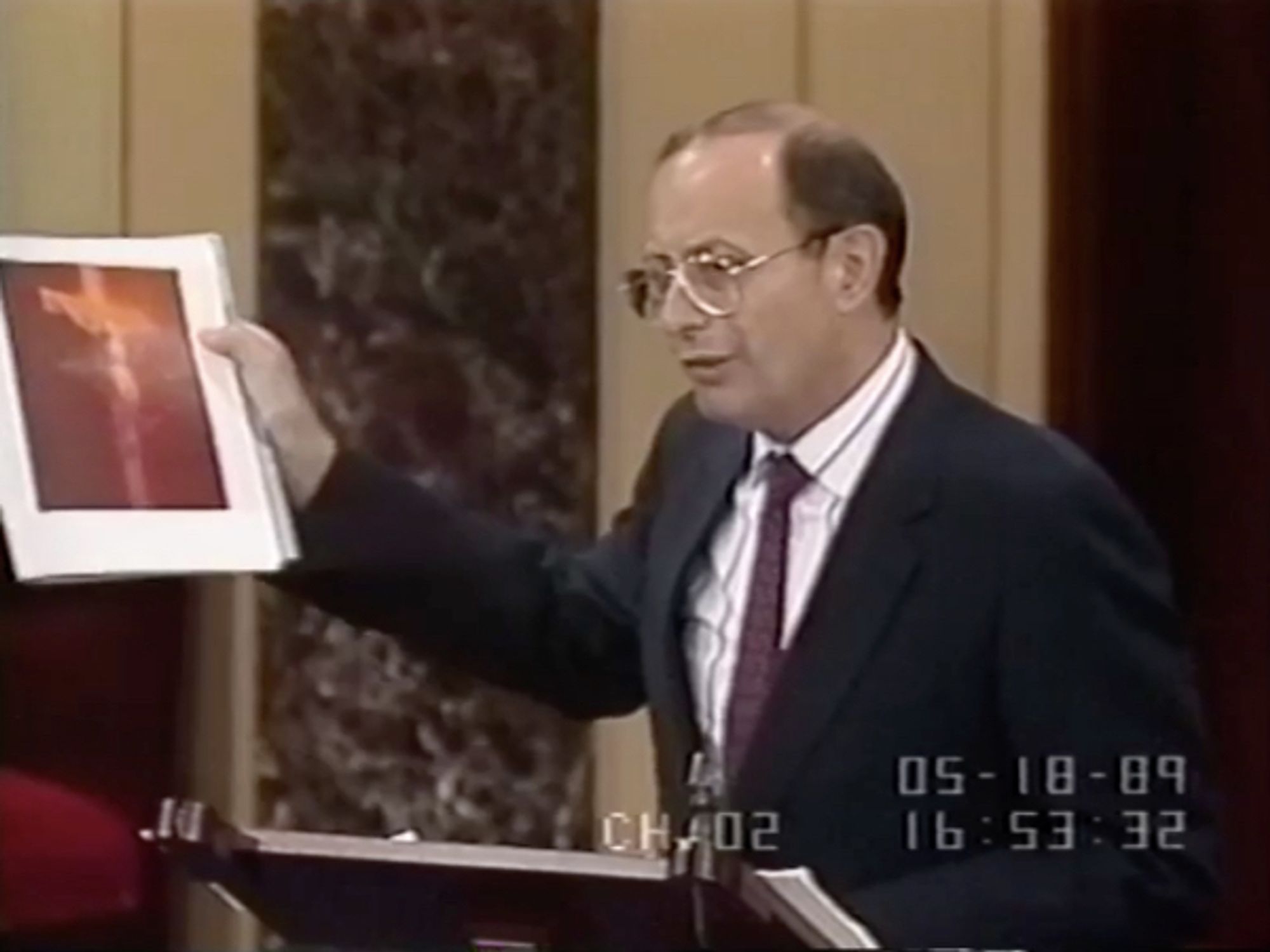
Rethinking Artists’ Rights Roundtable: Decency Clause
In the 1960s-90s, public protests and open hearings surrounding artists’ resale royalties, moral rights, and free speech were activated by participants across the art world. In the 1980-90s, collaboration with law and policy makers were fraught with questions about cultural and legal norms of ownership and free speech. As we re-examine this history during this time of heightened political engagement, how might the art community re-engage with issues of artists’ rights as local politics? And how do we come to terms with the use of artists and artist rights in the larger context of ‘culture wars’ and anti-intellectualism deployed in the political field today? This three-part roundtable series will bring together practitioners from art and law to unpack the legacies of particular artists’ rights statutes, and imagine new ways forward.
During the first session of this series, we will explore the National Endowment for the Arts’ “decency clause”, where after a series of battles over the public funding of art, legislation mandated that the NEA only fund artworks adhering to “general standards of decency and respect for the diverse beliefs and values of the American public.” In the ensuing case NEA v. Finley (1998) the Supreme Court found that the clause was not a violation of free speech, perhaps leaving uncertainty concerning the ability of artists to contest or create the laws directly impacting them.
Lauren van Haaften-Schick is a PhD Candidate in the History of Art at Cornell University researching artists’ interventions in the legal system and legal norms since the 1960s. Her curated exhibitions include “Non-Participation” (2014-16) and “Canceled: Alternative Manifestations & Productive Failures,” (2012-14) traveling in the US and abroad. From 2015-17 she was Associate Director of the Art & Law Program, New York, where she was a Curatorial Fellow in 2012. Lauren has received grants from the Mellon Foundation and the Terra Foundation for American Art among others, and has been a guest speaker at universities and art institutions internationally.
Kenneth Pietrobono is an artist, arts worker, activist and cultural advocate working in New York City. He is a member of the activist group, Occupy Museums, an appointed member of the Citizens’ Advisory Committee for the CreateNYC Cultural Plan and an alumnus of the Art Law Program in New York City.
Svetlana Mintcheva is Director of Programs at the National Coalition Against Censorship, an alliance of U.S. national organizations committed to protecting freedom of speech. She is the founding director of NCAC’s Arts Advocacy Program. Dr. Mintcheva has written on emerging trends in censorship, organized public discussions, and mobilized support for individual artists. Her current research focuses on ethics and self-censorship within art institutions.
Join us for Rethinking Artists’ Rights roundtables on The Visual Artists’ Rights Act on May 15 and The American Royalties Too Act on June 18.
Image caption: Senator Alphonse D’Amato (R-New York) denouncing NEA funding to Andres Serrano, May 18, 1989.